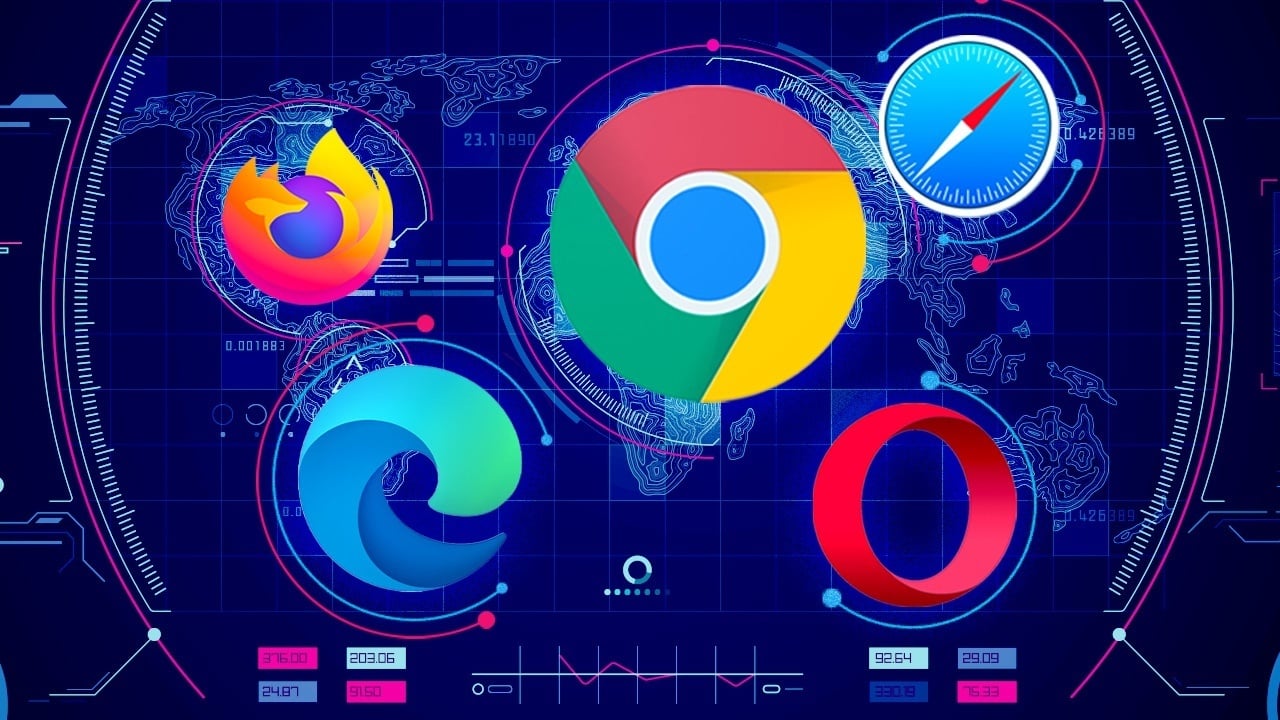
Browser emulation is like a virtual playground for web browsers. It mimics how different browsers behave, allowing developers to test websites and apps in various browser environments without needing to switch between them physically. It helps ensure things work smoothly for everyone, no matter which browser they use.
Understanding the Concept and Purpose
Browser emulation is like wearing a disguise for your web browser. It mimics another browser’s behavior, fooling websites into thinking you’re using a different one. This can help test how a website looks or behaves on various browsers, ensuring a smooth experience for all users. For example, you might use browser emulation to check if a website works well for Chrome and Firefox without switching browsers. In this article, I will list and explain the ways you can enhance your online experience. Stay read.
Application of Browser Emulation
Compatibility and Testing
Here, compatibility testing ensures that a website works well on different devices and browsers. Browser emulation plays a key role by mimicking how various browsers behave, helping to identify and fix issues. This enhances your online experience by making sure the website functions smoothly, regardless of the device or browser you’re using.
Customization Features
Browser emulation facilitates a tailored online experience through customization features. You can mimic different browsers, enabling testing of websites in various environments. This customization ensures compatibility and optimization of browsing settings for diverse web content and applications. For example, you can emulate Internet Explorer to access legacy websites that might not be compatible with modern browsers, providing a tailored experience based on your needs.
Optimizing Performance
Think of emulation as a browser putting on different “costumes” to work better. For example, if a website is designed for a phone, the browser might pretend to be a phone (emulate) to understand and load the site faster. This helps the browser perform well and show websites quickly, giving you a smoother experience when browsing.
Enhanced Security Measures
- Browser emulation can enhance online security by creating a virtual environment that mirrors a browser.
- These help prevent websites from detecting your actual browser, reducing the risk of targeted attacks.
- It can also mitigate fingerprinting attempts, providing a layer of anonymity and making it harder for malicious actors to gather information about your device.
- Additionally, browser emulation can be used to isolate potentially harmful content, offering a safer browsing experience by containing threats within the virtual environment.
Applications in Development
Developers use browser emulation in software and website development to simulate how their creations will behave in different web browsers without actually opening those browsers. This helps them catch and fix issues early on, ensuring a smoother experience for you. It’s like trying on different pairs of shoes before deciding which one fits best – developers can test and adjust their work to fit seamlessly across various browsers.
Benefits of Browser Emulation:
- Browser emulation helps developers identify and fix issues specific to certain browsers, ensuring a consistent experience for all users.
- Emulating older browsers allows you to access websites that were originally built for outdated technology.
- Browser emulation helps developers optimize websites for mobile users by simulating different devices and screen sizes.
- Developers use browser emulation to debug code and ensure that websites function correctly across different browsers, saving time and effort.
- Emulating different user agents allows websites to tailor content and features according to your device, improving overall user experience.
In other words, browser emulation is a valuable tool for web developers to create websites that work seamlessly across various browsers and devices, ultimately providing a smoother and more inclusive online experience for you.
Challenges and Considerations
When utilizing browser emulation, several challenges and considerations come into play.
- Browser Compatibility: Emulated browsers may not perfectly replicate the behavior of real browsers, leading to compatibility issues with certain websites or web applications.
- Performance Overhead: Emulating a browser consumes computational resources, potentially resulting in slower performance compared to native browsing.
- Security Concerns: Emulated browsers might not offer the same level of security as native browsers, exposing you to potential risks, especially if the emulation software is not regularly updated.
- JavaScript Execution: Accurate execution of JavaScript can be challenging in emulation, impacting the functionality of dynamic and interactive web content.
- Network Emulation: Emulating various network conditions, such as latency (how long it takes data to travel between the sender and the receiver) and bandwidth, is crucial for realistic testing but can be complex and may not precisely mirror real-world scenarios.
- User Agent Issues: The emulated browser’s user agent may not be recognized or accepted by all websites, affecting how content is delivered.
- Rendering Accuracy: Achieving pixel-perfect rendering is difficult in emulation, potentially leading to discrepancies in the visual representation of web pages.
- Browser Features: Some advanced features and Application Programming Interfaces (APIs) supported by real browsers may be absent or behave differently in emulated environments.
- Updates and Maintenance: Emulation software requires regular updates to keep pace with changes in web technologies, and neglecting this can result in outdated and unreliable emulation.
- License Compliance: Ensure compliance with browser emulation tools’ licensing agreements to avoid legal issues.
- Testing Realism: Emulation may not capture your entire experience, making it essential to complement testing with real-world scenarios on actual browsers and devices.
- User Authentication: Testing user authentication processes can be challenging due to potential differences in handling cookies and sessions between emulation and real browsers.
Addressing these challenges involves carefully considering the steps that I have mentioned, regular updates, thorough testing, and a combination of emulation and real-world testing for a comprehensive assessment of web applications.
Future Trends and Developments
In the future, how you use the internet might change with improvements in browser emulation. This means websites could run more smoothly, offering better online experiences. It’s like upgrading your internet surfing to be faster and more efficient.
